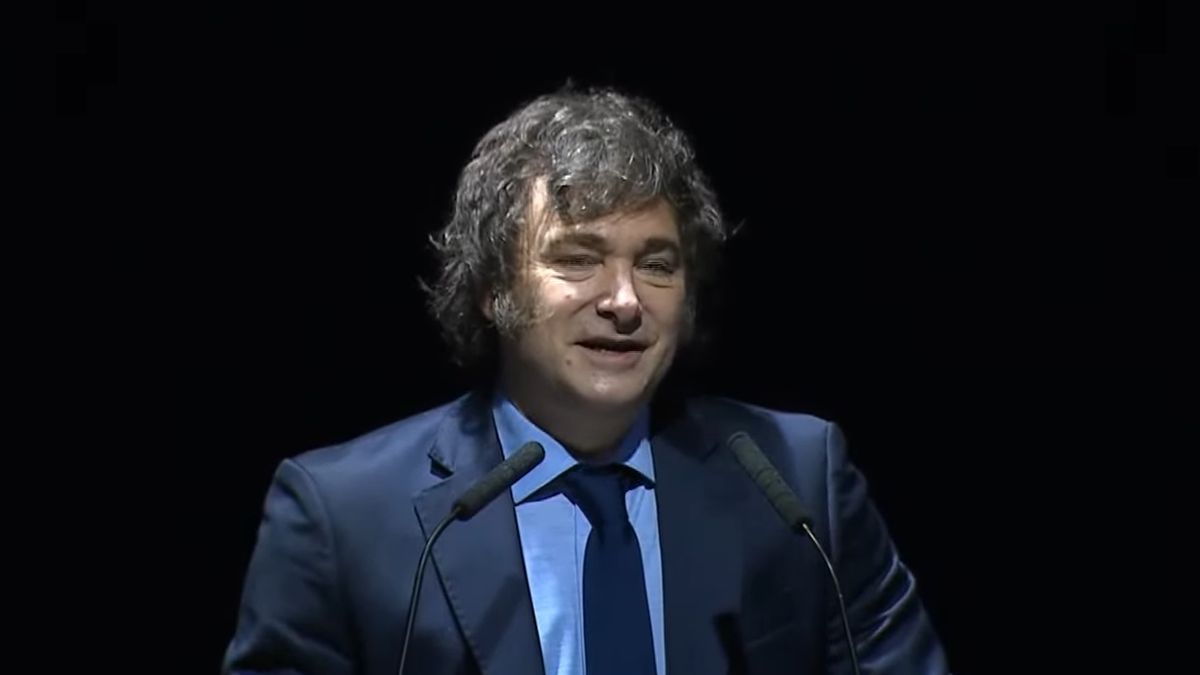“Aerolíneas Argentinas loses US$700 million per year. These funds, which are provided by the Treasury, should be dedicated to issues such as serve poor children. Only 2% of Argentines use the company that It is subsidized by the remaining 98% and, above all, for a group of privileged employees. These really are a caste”In these terms, President Javier Milei usually refers to the situation of the airline company.
Given this, the head of state gave precise instructions to his Cabinet to “definitively resolve the issue of Airlines.”
The Government’s assessment is that Argentine Airlines It has no chance of survival as long as it maintains the labor agreements that benefit the different unions. that intervene in the company’s activity. It is not a theoretical statement: “We talked to different potential investors and they told us that they don’t want it for free with these labor costs.”say official sources.
What’s more, the official position is “if on Friday the unions do not bring a concrete proposal for the company, the Crisis Preventive Procedure will be implemented. The deadline given to union members expires this Friday.
In official media they are not very optimistic, they believe that the unions will come with cuts in some privileges but that they will not imply a fundamental solution. ““With the current labor agreements, there are no interested parties for Aerolíneas, nor do they want it for free,” they comment on the Government.
Conflict with unions
In government media it is also clarified that The criticism is not of the company’s 12,000 employees, but of a group of union leaders who try to maintain privileges that are unsustainable.
They comment that the various aeronautical unions work in coordination so that the Government ends up accepting that ““It is impossible to manage Airlines without the union agreement,” in what is interpreted as an extortionate attitude. In the same sense, the message from Pablo Biro was taken, who stated that the proposal for the company only “I would introduce her to Milei.”
Those around the head of state affirm that “It is not knowing Milei, she does not accept extortion, on the contrary, in the face of adversity she advances even more.” Proof of this is the announcement of the deregulation of ramp services so that any company can provide this service, thus weakening the strength of Intercargo. Likewise, by establishing that the Air Force can take luggage off aircraft and assist passengers.
They point to years of mismanagement
Those responsible for defining the fate of the airline maintain that a good part of the problems must be attributed to years of mismanagement. For example, they point out that it is a contradiction that Aerolíneas has three fleets of airplanes (Boeing, Airbus and Embraer) with the consequent cost overruns.
Furthermore, they add that “During the years of Kirchnerism, everything was put together so that no company could compete with Aerolíneas. “It has most of the market and loses money, which reveals how poorly designed this market is.”
The opinion of the president is that Airlines should not only not have an operating deficit – as is currently the case – but that it should generate a surplus sufficient to cover the amortization of capital, something that, his associates maintain, is impossible with the current management of the company that should move into the private orbit.
From the official sphere they argue that There are no reasons to maintain the so-called “flag line”. Justifications for the continuity of Airlines such as “connectivity”, that is to say that their flights reach places where other companies do not go, do not make sense – they maintain – because private companies could be required to serve these destinations in exchange for the granting of the most profitable routes.
As an element in favor, they point out that different provinces have expressed interest in taking charge of part of the company’s businesses.
Prompt resolution
Concerned about the company’s large deficit and upset by the permanent union conflicts, Milei gave instructions for the Aerolíneas case to be resolved quicklyaccording to comments in the Executive Branch.
They say they have the support of public opinion. In official media it is commented that the actions of the union leaders have been “so clumsy” that The number of people who are in favor of the privatization of Airlines is increasing.
Official surveys showed that in March 90% of the population wanted to maintain the flag line, a proportion that was reduced to 50% last month and today there would surely be more who want its closure or its passage into private hands, as assessed in the Government.
Of course, they warn that continuous conflicts lead to a loss of value of the company such as, for example, its brand that is losing prestige.
A meeting took place last Tuesday, according to what he learned Scopein which officials from different areas analyzed the company’s situation. As it turned out, the opinions at this meeting were divided among those who believed it was necessary to advance with “drastic measures” and others who waited to be able to negotiate with the unions based on a more conciliatory attitude of the unions.
Those who are in this last position point out that there are expressions of unionism that are willing to review working conditions to maintain sources of work.
Others, however, consider that the toughest sectors of unionism will not be willing to make concessions and, in this sense, advocate solutions such as the intervention of the company or the application of the Crisis Preventive Procedure.
In this case it is a resource, contemplated by the Employment Law (24,013), which allows companies to suspend or dismiss personnel in the event of a reduction in work due to force majeure or for causes not attributable to the employer. However, there is a legal impediment since this procedure would not be applicable to Airlines due to its status as an essential service, according to specialists.
Source: Ambito




